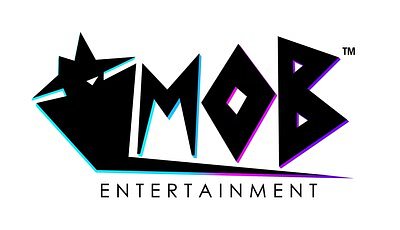
Beyond the Scares: ‘Poppy Playtime’ Evolves into a Horror Franchise Powerhouse
The indie horror hit ‘Poppy Playtime’ isn’t just about jump scares. Chapter 5 signals a strategic evolution – balancing franchise expansion with ethical considerations for younger audiences and a commitment to atmospheric storytelling.
Beyond the Scares: ‘Poppy Playtime’ Evolves into a Horror Franchise Powerhouse
The indie horror sensation ‘Poppy Playtime’ is maturing beyond its viral roots. With the announcement of Chapter 5, developer Mob Entertainment is signaling a strategic evolution – balancing franchise expansion with ethical considerations for younger audiences and a commitment to atmospheric storytelling. But can the team maintain its momentum while navigating a complex landscape of player expectations and parental concerns?
From Viral Sensation to Franchise Hopeful
Launched as a relatively unknown title, ‘Poppy Playtime’ exploded onto the gaming scene in late 2021, fueled by viral marketing and a genuinely unsettling premise. The game, centered around a haunted toy factory and a menacing cast of animated creatures, quickly captured the imaginations of players and streamers alike. It wasn’t just the jump scares that resonated; the game's unique aesthetic, intriguing lore, and genuinely creepy atmosphere set it apart.
“The initial success was frankly surprising,” says a source close to the development team. “We knew we had something special, but the speed at which it took off was unprecedented for an indie project.”
That initial success has translated into significant revenue – estimated at over $55 million – and a dedicated fanbase eager for more. Chapter 5 represents a critical step in solidifying ‘Poppy Playtime’ as a long-term franchise, with Mob Entertainment hinting at future chapters and potential spin-offs.
Balancing Scares and Safety: The ‘Huggy Wuggy’ Controversy
However, the game’s success hasn’t come without controversy. The character of Huggy Wuggy, a towering blue creature with a sinister grin, became a focal point of parental concerns, with some arguing that the character was too frightening for young children. Videos of young children reacting with fear to the game circulated online, prompting calls for age restrictions and content warnings.
“We were caught a bit off guard by the intensity of the reaction,” admits a source. “We always intended the game for a mature audience, but the viral nature of the content meant it reached a wider demographic than we anticipated.”
Mob Entertainment responded by emphasizing the game's intended audience and providing resources for parents, but the controversy highlighted the broader ethical considerations surrounding horror games marketed to younger audiences. The debate touches on responsibilities for content creators, the role of parental guidance, and the potential impact of media on children.
“There’s a real tension between creating engaging, immersive experiences and protecting vulnerable audiences,” says an industry analyst. “Developers are increasingly aware of these ethical considerations, but it’s a challenging balancing act.”
Beyond Jump Scares: The Art of Atmospheric Horror
Despite the controversies, the core appeal of ‘Poppy Playtime’ lies in its ability to create a genuinely unsettling atmosphere. The game eschews reliance on cheap jump scares, instead focusing on environmental storytelling, subtle sound design, and a creeping sense of dread.
The game’s art style, inspired by vintage toys and abandoned factories, contributes significantly to its unsettling atmosphere. The environments are meticulously crafted, filled with unsettling details and hidden secrets.
“The team really focused on creating a sense of place,” explains a source familiar with the development process. “They wanted players to feel like they were actually exploring a haunted toy factory, and every detail was designed to contribute to that feeling.”
This commitment to atmospheric storytelling sets ‘Poppy Playtime’ apart from many other horror games, which often rely on gore and violence to shock and frighten players. The game prioritizes psychological horror, creating a sense of unease that lingers long after the credits roll.
The Road Ahead: Expanding the ‘Poppy Playtime’ Universe
Chapter 5 represents a crucial juncture for ‘Poppy Playtime’. With a dedicated fanbase and a growing reputation, the game has the potential to become a major franchise in the horror genre.
However, maintaining that momentum will require careful planning and a commitment to quality. Mob Entertainment will need to navigate the challenges of expanding the universe while staying true to the core values that made the original game so successful.
“The team is very aware of the risks involved in expanding a franchise,” says an industry insider. “They want to ensure that any future installments maintain the same level of quality and creativity as the original game.”
The success of ‘Poppy Playtime’ also raises broader questions about the future of indie horror. The game’s viral success demonstrates that there is a significant appetite for innovative and atmospheric horror experiences.
“‘Poppy Playtime’ has definitely opened doors for other indie horror developers,” says an analyst. “It proves that you don’t need a massive budget or a well-known brand to create a successful horror game.”
As ‘Poppy Playtime’ continues to evolve, one thing is certain: the future of indie horror looks brighter than ever. The team's ability to balance creative vision with ethical responsibility will ultimately determine whether ‘Poppy Playtime’ can solidify its place as a truly enduring horror franchise.
